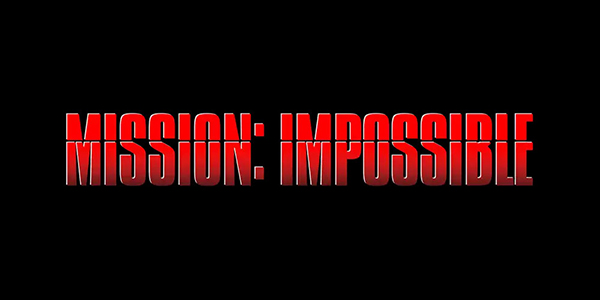Today we’re sharing insight from guest blogger Kimberli Mock, SPHR, SHRM-SCP, Forum Leader for Renaissance Executive Forum’s Emerging Leaders Program, and owner and CEO of TalentEvolutions. We hope you enjoy Kim’s wisdom and perspective.
So, business is great and you realize your growing organization needs to develop some new leaders. Excellent problem to have, right? Many organizations work hard to identify upcoming leaders, often focusing primarily on individuals who have been successful in their current individual contributor role. Unfortunately, that may not be the best approach.
While leaders need to have business expertise and company knowledge, when we think about leaders we've admired in the past, we often focus on the characteristics they displayed that set them apart from those who simply “managed” others. One of these key characteristics is being an effective communicator.
Effective communication is an important trait for leaders in any organization, department, or group. It’s how we know what others want, what they need, and how they feel about things in their work and home lives, which often blend together these days. Unfortunately, sometimes communications are not as effective because we are so focused on the end goal that we forget what's needed to get there - good, clear communication and direction.

In my career in HR I’ve found that people can generally be divided into two “buckets” as to how they communicate with others. Some people can be identified as “heart” people. They react first to information with their hearts, or their feelings about the issue and process the information there. Then they run it through their brain and consider the facts associated with the issue to make a final decision.
Others are “head” people, meaning they begin evaluating the issue or situation with their heads and seek to find facts that support the issue or decision. Then they check in with their hearts to determine how to share the information best with others.
Why is this important? You need to know how to best approach someone when trying to make a case for something you want or need. For head people, start with facts and figures related to your cause and be able to support them. For heart people, focus on how this will impact people, i.e. staff, clients, etc. Then, talk about your exact plan to get there. Meeting their emotional needs first will make the rest of the conversation easier.
Studies show that the most successful leaders are excellent communicators and, typically have high Emotional Quotient (EQ) or Emotional Intelligence (EI). Initially, one might think that means being sensitive to other’s emotions. Or, perhaps, it means not being so emotional and using one’s intellect instead. So, what’s all the fuss about?
So now that we know EI is actually about communicating effectively and relating to others in the manner in which the individual you are speaking to needs to hear the communication, i.e. how they "filter" the information, we can train our managers how to react in situations such as:
- Relaying information about how work should be completed,
- Explaining how an individual can improve on the job,
- Giving instructions and feedback on completing a new task, and
- When receiving feedback during the performance review.
Non-verbal cues are as important as verbal cues and are likely more telling as to how the individual is responding to the conversation, which speaks to the adage, "actions speak louder than words.” That's why it's so important to pay attention to the receiver's body language as well as your own during these interactions. Ask clarifying questions if the individual appears to be uncomfortable, doesn't understand, or disagrees with what you are saying.
Multi-Health Systems, the group that developed the EQi assessment to measure one’s emotional intelligence, states that “EI is one of the biggest predictors of success in life and work.” This is important because we all use EI every day with each encounter we have with other individuals; some us are better at it than others. In fact, emotional Intelligence significantly impacts a manager’s performance. Let’s look at the statistics as measured by MHS. Did you know:
- 47% of variation in managers' performance scores is predicted by EQ. The higher the EQ, the higher the individual’s performance ratings.
- 76% of the variation in organizational engagement scores is predicted by EQ. Managers with higher EQs listen to their employees and work to understand and address their specific needs, versus using a “blanket” approach. Effective listening increases employee loyalty and retention, and assists productivity.
- 5% indicates the difference between the highest and lowest engagement in workplaces with low EQ. Since the #1 reason an individual leaves an organization is her/his boss, it follows that having a boss with higher EQi makes her/him more approachable, a better listener and more concerned with the overall well-being of their employees. (Which, by the way also improves employee retention.)
So, how do we as leaders increase our own Emotional Intelligence? To begin we can:
- BE MORE AWARE. Get to know those you work with well. Observe how they make decisions. Learn what's important to them personally and professionally and work to help them meet that need. (i.e. praise, privileges, promotion, etc.)
- BE MORE INTENTIONAL. Listen to what they have to say first, then speak to each individual in the way they need to hear the information (brief, detailed, or in writing) so they can effectively process what you have said. Then talk about the details and have them explain it back to you to be sure they are on target.
- BE MORE PURPOSEFUL. Place both types of individuals on teams so the team can look at an issue from all angles, particularly that of the client, whether internal or external.
Leaders can be much more effective in their communications by being aware of the feelings, body language, and tone of the person they are talking with, and then checking their own reaction before replying. You will have a much more engaged team with a clearer direction. This is done in an effort to get individuals' input, get them on board with a decision, and have them willing to follow your direction as a leader.
What’s in it for you? The benefits of having a higher EQ for an organization including:
- Lower turnover
- Higher engagement
- Better listeners
- More approachable managers who are focused on the overall well-being of their employees as well as the company’s
What’s The Risk?
To quote an old adage, “Meet people where they are.” Failing to tailor your message to the receiver will likely result in confusion, negative emotions, incorrect completion of the task, high turnover of employees, and perhaps, even more likely, turnover of clients.
Keep your people on track by communicating with your direct reports, and your clients, in a way that is most meaningful to each of them.
To learn more about Emotional Intelligence and the EQi-2.0, contact Kim Mock at kmock@executiveforums.com.
This content was written and shared by Kim Mock.
 Kim is a seasoned Human Resources and Learning and Development professional and Coach with 30+ years of experience in her field. She formed and started her own company TalentEvolutions to help companies without training resources grow and develop their staff.
Kim is a seasoned Human Resources and Learning and Development professional and Coach with 30+ years of experience in her field. She formed and started her own company TalentEvolutions to help companies without training resources grow and develop their staff.
She is certified in the EQI 2.0 and EQi 360 assessments and has used the Caliper profile for job fit for over 20 years and uses both tools in her coaching sessions
To support her community, Kim has served on the Youth Service Bureau Board as a board member and past President, is a past President and board member of the Michiana Chapter of the Society of Human Resources Management (SHRM), and served on the Indiana SHRM State Council as well.
Kim speaks at meetings and conferences on a variety of topics such as Utilizing assessments, Training and Development, and Emotional Intelligence.



